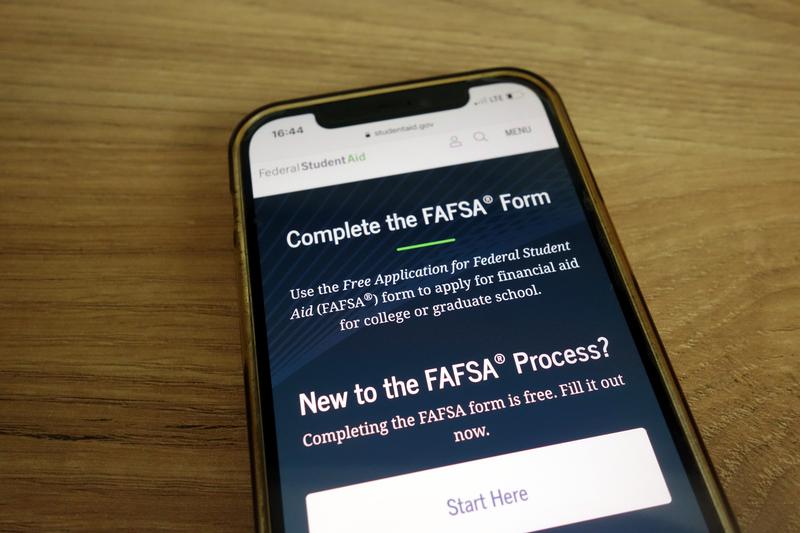The new FAFSA rollout has been anything but smooth. Launches and data processing timelines have been delayed, and students and parents have dealt with inaccessibility and bugs on the new online platform.
Naturally, this has caused a lot of anxiety and frustration – for everyone involved. As
National Decision Day draws nearer, these feelings have only intensified.
The White House and the
U.S. Department of Education have acknowledged the FAFSA issues, and they’re attempting to remedy any disappointment and confusion by calling for a FAFSA Week of Action. During this time, the administration and education leaders are calling on communities to come together to help students and parents complete the FAFSA.
FAFSA Week of Action: April 15 – 19
For one week, The White House and the Department of Education have asked counselors, teachers, administrators, students, and families to take a pause and make filing the FAFSA a top priority. The
National College Attainment Network (NCAN) emphasizes, “The announcement comes as advocates across the country are calling with increasing urgency for a concerted effort from all stakeholders and at all levels to assist students and families with completing the 2024-25 award year FAFSA.”
The federal government has provided multiple actionable ideas for schools, organizations, and communities to host and utilize to increase FAFSA submissions:
• Hosting an in-person or virtual FAFSA Week of Action form submission event.
• Emailing, texting, or sending push notifications to students and families about the new FAFSA and how to submit the form.
• Incorporate information about the new FAFSA in newsletters, webinars, upcoming events/conferences, or resource sites.
NCAN reports that FAFSA submissions are down 30% from last year. These decreasing numbers come at a time when it is estimated that more students than ever will qualify for Pell Grants, which is a component of
financial aid that does not need to be paid back.
Ask your school counselor if they plan to host any FAFSA completion event. You can also reach out to financial aid administrators at the college you plan to attend for help. Finally, search your community calendar for any FAFSA events. These may be held at your local library or community center.
FAFSA Completion Resources
If you haven’t completed your FAFSA, the time to submit the form is now. In addition to help from your school and community, you can also find helpful resources right here on Fastweb.
Introduction to the FAFSA
If you hope to qualify for financial aid, you must complete the Free Application for Federal Student Aid (FAFSA). Before you start the process, familiarize yourself with the form.
•
What’s the FAFSA? And Why Should You Care?
•
FAFSA Checklist
•
2024 – 25 Financial Aid and FAFSA Stated Deadlines
Better FAFSA Changes and Processing Delays
Over the past few years, the FAFSA has been undergoing changes to become a more simplified process. The new FAFSA will be easier to complete and will allow more students to qualify for financial aid, like the Pell Grant.
There are also new components to the financial aid process, like the FAFSA Submission Summary that is available to students and families once they complete the form.
•
What You Need to Know About FAFSA Simplification
•
FAFSA Submission Summary
•
FAFSA Delay Impacts Colleges, Students: Tips to Navigate It
•
Pell Grants 101: Everything You Need to Know
Navigating Difficult FAFSA Scenarios
Completing the FAFSA is easier than ever this year, but there are complicated circumstances that make it a little harder for certain students. Fortunately, if you’re struggling to complete the FAFSA, you can find help from school counselors, financial aid administrators, teachers, mentors, etc.
•
Can I Be Independent on the FAFSA if I am Under Age 24?
•
Help! Parents Won’t File the FAFSA or Help Pay for College
•
Which of the Divorced Parents Must Complete the FAFSA?
Types of Financial Aid
The FAFSA is used to qualify for multiple types of financial aid. In many cases, you will not qualify for aid at all if you do not fill out the FAFSA.
Scholarships
Some scholarships are need-based, meaning that a student must be considered financially needy in order to qualify. The only way to determine financial neediness at the federal, state, and school-level is to complete the FAFSA. Scholarships are one of the best forms of financial aid as they do not need to be paid back.
Grants
Like scholarships, grants do not have to be paid back. These are typically exclusive to students who are financially needy.
Over
5 million students in the United States are considered needy enough to qualify for a Pell Grant, which maxes out at $7,395 for the 2024 – 25 school year. The only way to receive a Pell Grant is to submit the FAFSA.
Work Study
Work study is another form of financial aid that students can qualify for after submitting the FAFSA. These job opportunities, typically found on college campuses, allow students to use their paycheck to pay their tuition bills or other student expenses.
Loans
Finally, the only way to qualify for low-interest rate
federal student loans is to complete the FAFSA. While there are loans that are exclusive to financially needy students, any student can take out an unsubsidized student loan. However, once again, you must have a FAFSA on file to take advantage of this form of financial aid.
